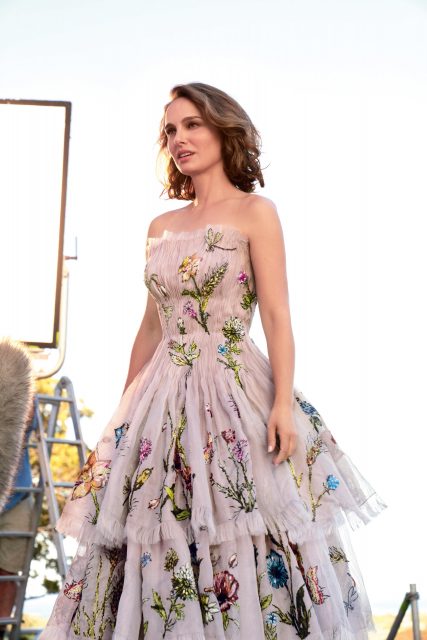Lockdown was the exact prescription self-professed goth chick and The Strixx singer Diana d’Arenberg needed to rekindle her musical pursuits. D’Arenberg grew up singing the blues but quarantine gave the singer time to finally get serious about making music. With Eamon Fitzpatrick, guitarist and musical polymath, d’Arenberg formed The Strixx, a neo-goth and indie rock act made in Hong Kong. Finding their respective schedules cleared up for the foreseeable future, The Strixx released their debut single ‘Better Days’ in August 2021.
With so much of recent music released in isolation, perhaps one might picture an image of the recluse artist, creating art in solitude. As just one half of The Strixx, it was not quite the solitary act for d’Arenberg – the collaborative process with Fitzpatrick was fuelled by a shared love of eighties post-punk, discovered one night when Fitzpatrick shared that he too, was a goth. “We started a playlist with Sisters of Mercy, Cocteau Twins and all these other brands and I realised we knew the words to every song. I just thought ‘Hey, wouldn’t it be great if we could do something like this?’”
When the two aren’t moonlighting as musicians, d’Arenberg is a journalist covering the art and fashion circuit and Fitzpatrick is a strategist partner at Consulum. Rarely do the two ever find themselves in the same country, no less holed up together in a studio high above the neon-tinged skies of Hong Kong, making music to the likes of Grace Jones, Stevie Nicks and Anita Mui. But as the pandemic raged, so too did the music.
“Lockdown was super helpful,” d’Arenberg said, “You had these two people – Eamon and I, on the same wavelength creatively and then suddenly, there wasn’t any distraction anymore. You know, normally you’d split your attention in a million different pots – meetings, kids, whatever. Finally, we were able to just hunker down and focus.”
View this post on Instagram
And focus they did, Fitzpatrick manning the guitar; his slick riffs establishing a dreamscape from which d’Arenberg’s velvet vocals emerge. Together, they make up a sound that is equal parts pulled from scenes of disco clubs and leather boys as it is from science fiction and Shostakovich. The influences are disparate but cohesion threads across the Strixx’ forthcoming album in its themes of loneliness and introspection.
These ideas are unreservedly established in the ‘Better Days’, a song that – believe it or not, is not about a post-COVID world, but has to do with “feeling like your own worst enemy”. D’Arenberg says that the seeds of the single borrow from something she’d written long ago: “I took scraps of sentences here and paragraphs there. You kind of learn, as a writer, to take bits of inspiration from everywhere and create something with your own voice.”
Truer rings that statement when you learn that synesthesia plays a big part in d’Arenberg’s songwriting. The sound-colour association is the same phenomenon Lorde credits in her own music, saying that synesthesia helps to match rhythm to emotion, based on the visual connections she sees in her head. More than anything, songwriting is based on intuition and a perceptual feeling. “When the songs are in your head, it kind of just fits magically – then the rest is about polishing and editing it out.” d’Arenberg says.
But the craft of songwriting is, ultimately, a lonely act. It asks you to retreat into yourself and dig up old wounds. For d’Arenberg, that’s revisiting moments of crippling anxiety and depression. In a turn of events, this isolate lockdown posed no better circumstance for d’Arenberg to combine minds with Fitzpatrick, turning the creative process into a rather collaborative one instead. These are the same set of circumstances that spurred many a quarantine album such as the popular album folklore, a quiet and somber ‘indie’ project at the helms of Taylor Swift who too embarked in a musical partnership with Jack Antonoff and Aaron Dessner from The National.
“[Collaboration] is crucial in this situation,” D’Arenberg says. As it stands, Fitzpatrick and d’Arenberg are separated once more – the guitarist is back in Australia, where his family resides. For now, the chances of performing live remain slim. But one thing is certain about making music, or any art for that matter. It’s as d’Arenberg perfectly puts it: “You can’t do it in a hermetically-sealed bubble.”
Editor
Rachelle Ma





